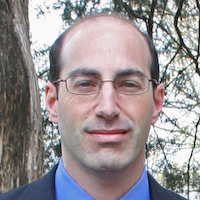Non-essential agencies of the federal government were shut down in October 2013 because politicians could not agree on how to fund them. Although balancing the federal budget may seem difficult, a University of Georgia economics professor taught his students how to do so in just one semester.
UGA's First-Year Odyssey Seminar program was established in 2011 seeks to broaden students' horizons by placing them in small class environments with other first year students and engaging them with faculty, who may teach outside of their normal field of study.
“They realized this all actually matters to them,” said Jeffrey Dorfman, a professor of agricultural and applied economics in the College of Agricultural and Environmental Sciences who teaches the U.S. budget class. “It’s their money [and] they’re the ones (that are) going to get stuck with the bill.”
In the most recent session of “Balancing the Federal Budget in Fifteen Weeks,” a UGA First-Year Odyssey class, 16 students learned about the federal budget then researched and evaluated proposals on ways to balance it.
The Congressional Budget Office estimates that for the current fiscal year the federal government will spend $650 billion more than it makes. This imbalance would add to the national debt, which is estimated at $16 trillion.
Existing proposal ideas range from increasing taxes on gasoline and income to cutting spending on programs, such as Medicare and Medicaid.
The UGA students’ proposal offered a savings of $702 billion; this would eliminate the $650 billion spending debt and leave a $50 billion budget surplus. Their ideas included immediately raising the age for Social Security eligibility to 70, decriminalizing and taxing marijuana, and cutting defense spending by 10 percent.
To develop their plans, the class met once a week for 50 minutes and students were split into groups; each group chose to adopt current ideas and to present new ideas. Unlike existing proposals that projected a balanced budget within a few years, the Dorfman's students’ ideas were required to reflect immediate savings.
There are few to no impartial sources for examining federal budget reform. So Dorfman requires the students to note which proposals carried a conservative bias and which carried liberal bias. The students based their proposals on basic principles of economics and their own feelings about fairness, but had to include calculations demonstrating how much money each change would save.
Dorfman offered feedback and verified that legitimate, reputable sources with correctly calculated savings were used. The students’ suggestions were split into three categories: revenue increases, spending, and program cuts. The class voted as a whole on which ideas to include in their final proposal.
Houston Gaines, a first-year political science and economics major, was already interested in the topic but said it was nice to be able to look at actual numbers and determine a balanced budget. He was surprised by some of the findings.
“Lots of shocking things,” Gaines said. “It may seem that we’re in trouble but we’re really in really deep trouble.”
The partial shutdown in October lasted for 16 days and experts say it could happen again in 2014 if an agreement among Congress is not reached. Dorfman hopes to teach the class again in fall 2014.
“I don’t think they’ll balance the budget this year,” he said, “so I think we can safely do the class again.”
To read more about UGA Department of Agricultural and Applied Economics visit http://www.caes.uga.edu/departments/agecon/.







